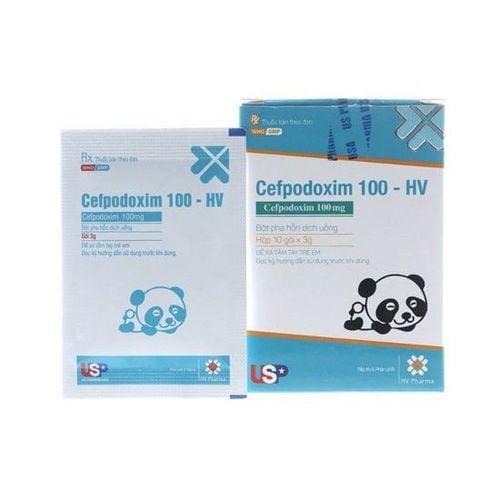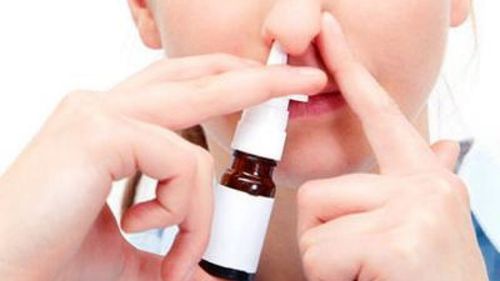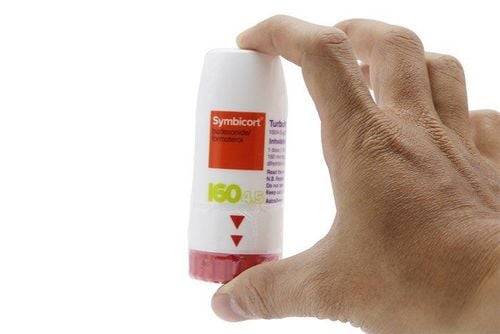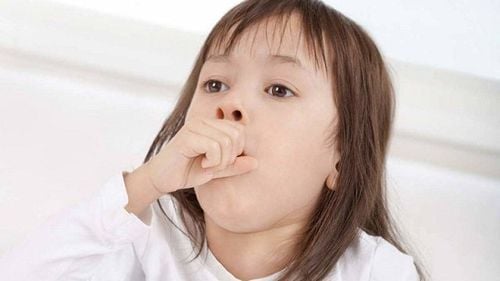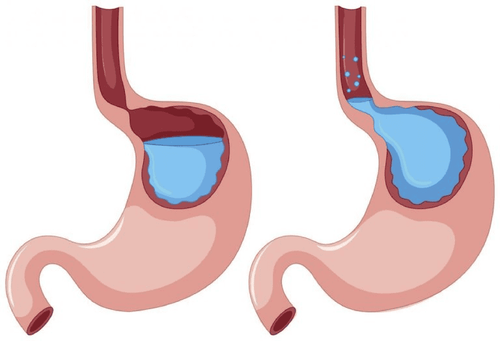This is an automatically translated article.
The article is professionally consulted by Master, Doctor Nguyen Thanh Hung - Head of Pediatrics - Neonatology Department - Vinmec Nha Trang International General Hospital.The condition of a baby's cough, such as a dry cough, cough with phlegm, a cough with a runny nose and vomiting, a cough that doesn't go away for many days, a cough at night, is always something that makes mothers extremely worried. In order to "decode" the cause of the baby's cough and completely treat it, the doctor at Vinmec shared the following information.
1. Causes of baby's cough
Coughs are often a sign that the child's body is responding to external factors, limiting the entry of foreign objects or participating in the expulsion of secretions. Common causes of a baby's cough include:1.1. Cause from the baby's upper respiratory tract Common diseases: Colds, rhinitis, pharyngitis, sinusitis, tonsillitis often dry cough, or cough with phlegm due to discharge from the sinuses or the back of the nose.
1.2. Causes from the baby's lower respiratory tract Possible causes: Laryngitis with hoarseness, dry cough, resounding cough, bronchitis, pneumonia, bronchiolitis, asthma often cough with phlegm.
1.3. Other causes Other common causes such as cough due to gastroesophageal reflux disease, cough caused by allergies, cough caused by physical and chemical agents such as passive smoking...
Trắc nghiệm: Nhận biết sớm dấu hiệu chậm phát triển thể chất và trí tuệ ở trẻ
Nếu 6 tuổi không biết đếm số, 7 tuổi vẫn chưa phân biệt được giữa thực tế và tưởng tượng thì có thể bé chậm phát triển thể chất và trí tuệ hơn so với bạn bè cùng lứa. Bạn đã nhận biết được các dấu hiệu bất thường sớm này chưa? Cùng làm nhanh bài trắc nghiệm sau để trang bị thêm kiến thức cho mình nhé!
The following content is prepared under supervision of Thạc sĩ, Bác sĩ y khoa, Ma Văn Thấm , Nhi , Phòng khám Đa khoa Quốc tế Vinmec Dương Đông(Phú Quốc)
2. Distinguish common types of cough in babies
Baby has a dry cough, cough with phlegm, cough at night. Children have a cough depending on the case, the cause and treatment will be different. The following are the most common types of cough in children.2.1. Cough intermittently The cause of intermittent dry cough in children stems from infections of the upper respiratory tract (nose and throat area) such as colds and flu. In addition, a dry cough can also be an early sign of a lower respiratory tract infection such as bronchitis or pneumonia. Other causes include: Children are regularly exposed to secondhand smoke from adults.
2.2. Coughing up phlegm This type of cough is caused by mucus in your baby's lower respiratory tract. Common causes of a productive cough are bronchitis, bronchiolitis, and asthma. Thereby, the cough will remove the fluid (sputum) through the lower respiratory tract.
2.3. Children with pertussis The symptoms of whooping cough are similar to those of a cold, but the cough gets worse, especially at night. When a baby coughs, the sound is like a hissing sound. Whooping cough causes difficulty breathing and the baby's face turns blue from lack of oxygen.
3. How to completely treat the baby's cough?
3.1 Should parents buy their own cough medicine? When your baby has a cough, parents should consult a doctor before giving them any medicine. In fact, most doctors do not encourage parents to arbitrarily give drugs to young children. Especially now, the situation of antibiotic resistance is increasing rapidly. According to the recommendations of the American Academy of Pediatrics (AAP), parents should not arbitrarily use drugs for children under 4 years old, even for children 4 to 6 years old, they should also use drugs as prescribed by a doctor. When the child is 6 years old, parents can go to the pharmacy to buy cough medicine for the baby, but it is necessary to use it according to the instructions of the pharmacist at the counter, noting the appropriate dose of the medicine for the child's age. Do not give your child more than 2 medicines at the same time, because in each medicine there are often many different active ingredients and it is very likely that you will accidentally give your child an overdose of an active ingredient. easily lead to undesirable effects.3.2 Under what circumstances should a child see a doctor immediately? A baby with a cough does not always require a special examination by a doctor. Most symptoms will go away on their own.
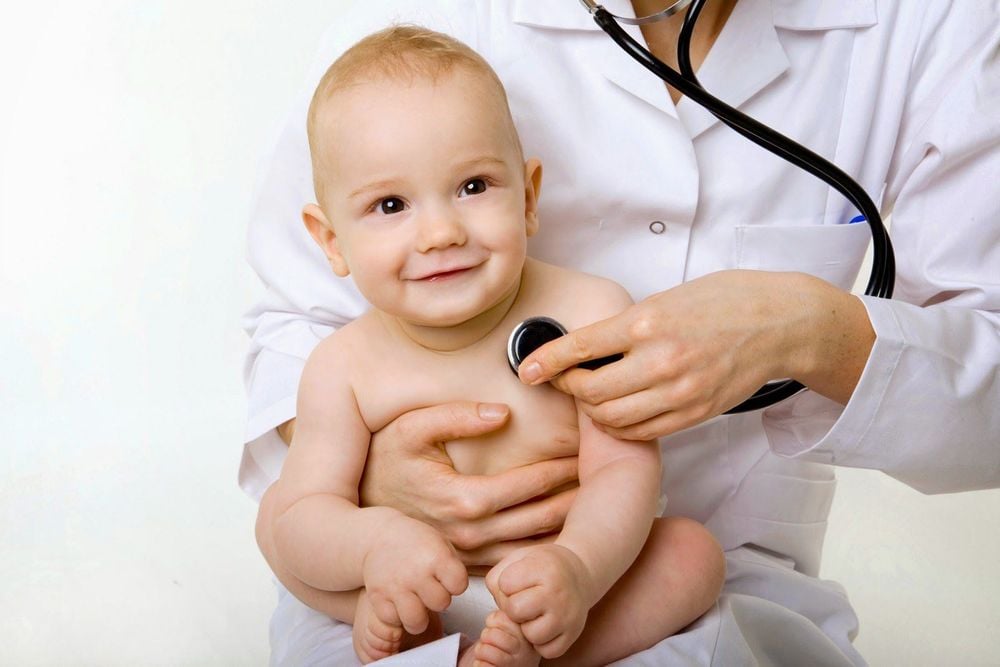
Your baby has cyanosis of the lips and around the lips. Baby is tired, breathing hard. Baby stops breathing.
For the following symptoms, take your child to the doctor as soon as possible:
Feeling uncomfortable when breathing or talking Cough with vomiting Purple face or lips when coughing Drooling or difficulty swallowing Looks very weakness or fatigue Baby or parent feels foreign body stuck in throat Chest pain when breathing deeply Coughing and wheezing Babies under 4 months old with rectal temperature above 39°C (Do not give children fever-reducing medicine) Baby has a high fever of 40°C, which does not improve within two hours of taking antipyretics The infant is feeding poorly or refusing to breastfeed 3.3. What to do when your baby has a cough?

Should let the baby have more time to rest. Boost your baby's resistance with breast milk or formula. Besides, need to add more water and electrolytes Sauna can help reduce cough for babies. Parents should sit with the baby in the bathroom, using warm or hot steam. The warm air and heat from the water will help relax your baby's airways. Be careful not to burn your baby If your baby is more than 1 year old, you can give him a glass of warm water with honey and lemon. Note that this method should not be applied to children under 1 year old, because the immature organ system can increase the risk of food poisoning from honey. Vaccination for children 0-24 months old is an effective method of prevention. and most economical to help children prevent coughs caused by diseases such as flu, bronchitis, pneumonia, ...
4. What should be noted in the baby's cough?
Lozenges and certain medications can relieve a sore throat caused by a cough. Note: Do not arbitrarily use the drug for children under 4 years old.Some over-the-counter cough and cold medicines may not be suitable for infants and children under 6 years of age because of the risk of adverse reactions. Use cough medicine as prescribed by your doctor. Children's diet should limit the following foods: chocolate, mint, fatty, spicy foods, stimulants and carbonated drinks. Eat small meals and feed your child at least two hours before bedtime. If your baby's cough continues to not improve, you need to take your baby to see a doctor for an accurate diagnosis and prompt treatment. Baby cough is a common symptom in children. However, once you have learned the causes of your baby's cough, the specific symptoms of your baby's cough, it will be easier for parents to determine the direction, so that they can visit a specialist and treat it. The most appropriate treatment for your child
In case the child has a long-term cough that does not go away, it is necessary to take the child to a reputable medical facility for examination. Vinmec International General Hospital, with a team of leading pediatric doctors and modern equipment, is an address that many parents trust in the treatment of children's diseases, such as cough with phlegm, cough with wheezing. wheezing, high fever, pneumonia,...
In addition, parents should also add some supportive foods containing lysine, essential micro-minerals and vitamins such as zinc, chromium, selenium, vitamins. group B, ... helps to fully meet the needs of nutrients while supporting the immune system, enhancing resistance, reducing the risk of upper respiratory tract infections, bronchitis, flu.
Lysine is very necessary for the development of children, Lysine promotes the production of digestive enzymes to stimulate children to eat better and digest easily and effectively, increase food metabolism, maximize absorption of nutrients. Nutrition from food.Strengthening lysine for babies helps the body create antibodies, develop resistance to help reduce cough, thin phlegm in children.
Parents can learn more: Why do you need to supplement Lysine for your baby?
Please regularly visit Vinmec.com website and update useful information to take care of your baby and family.






